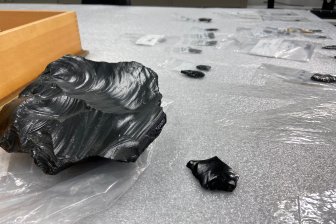The federal Liberals tabled a bill Friday to eliminate “self-induced extreme intoxication” as a legal defence for violent crimes, after the Supreme Court of Canada struck down a similar provision in May.

Bill C-28, introduced by Justice Minister David Lametti, would create new language in the Criminal Code that creates criminal liability when a person who commits a violent crime is “a state of negligent self-induced extreme intoxication.”
For a person to be found criminally liable under the drafted update of Section 33.1 in the code, the court would need to consider the foreseeability of the risk that ingesting intoxicating substances could “cause extreme intoxication and lead the person to harm another person.”
In making that determination, the court would have to consider anything the person did to avoid such a risk.
The bill defines “extreme intoxication” as intoxication that renders a person unaware of, or incapable of consciously controlling, their behaviour.
The new language is being proposed in response to the Supreme Court’s unanimous decision that the previous wording of Section 33.1, which eliminated “self-induced intoxication” as a defence, was unconstitutional.
In the court’s decision, Justice Nicholas Kasirer wrote that convicting someone for how they behave in a state of automatism, or when they are too intoxicated to stay in control, violates principles of fundamental justice.

Under the previous version of the law, the court found a person could be convicted without the prosecution having to prove that they acted voluntarily or that they ever intended to commit a crime — even though a “guilty action” and a “guilty mind” must ordinarily be present for someone to be found guilty of a crime.
The court upheld two acquittals of men who committed violent acts after voluntarily consuming drugs, and ordered a new trial in a third, similar case.
It suggested Parliament could enact new legislation to update the language of the Criminal Code and hold “extremely intoxicated” people accountable for their violent crimes.

The section the court struck down had been added by the Liberal government of Jean Chretien in 1995, in response to a Supreme Court decision that acquitted a man of sexual assault because he was blackout drunk at the time of the offence.



Comments